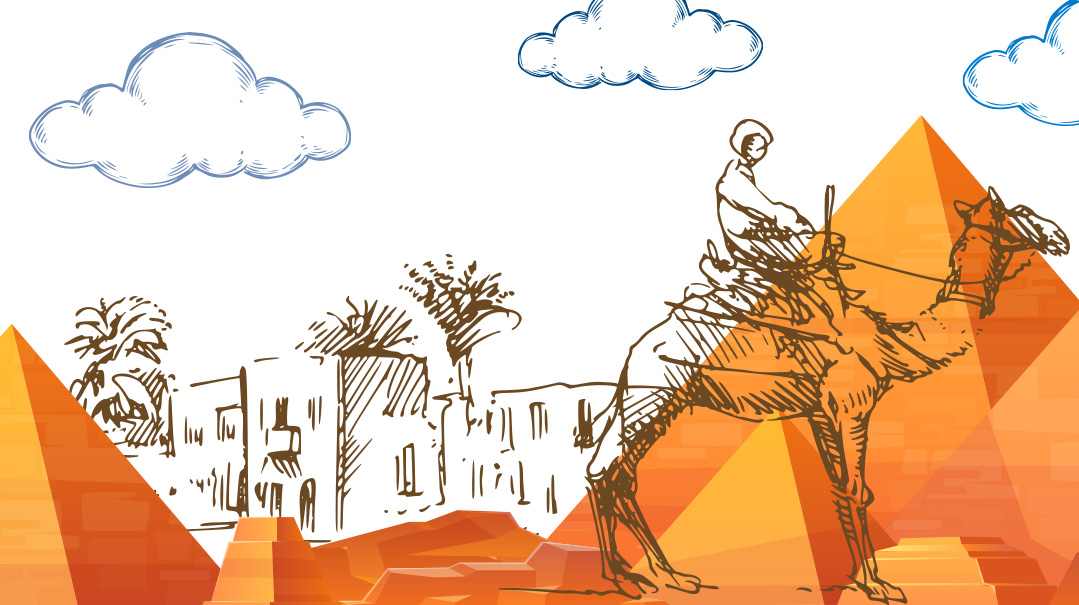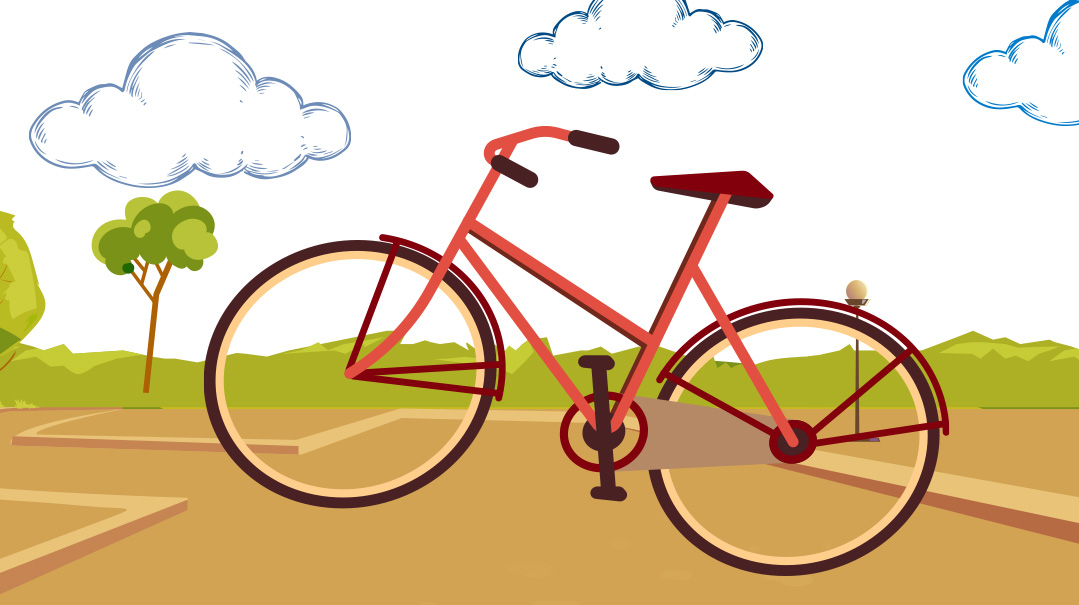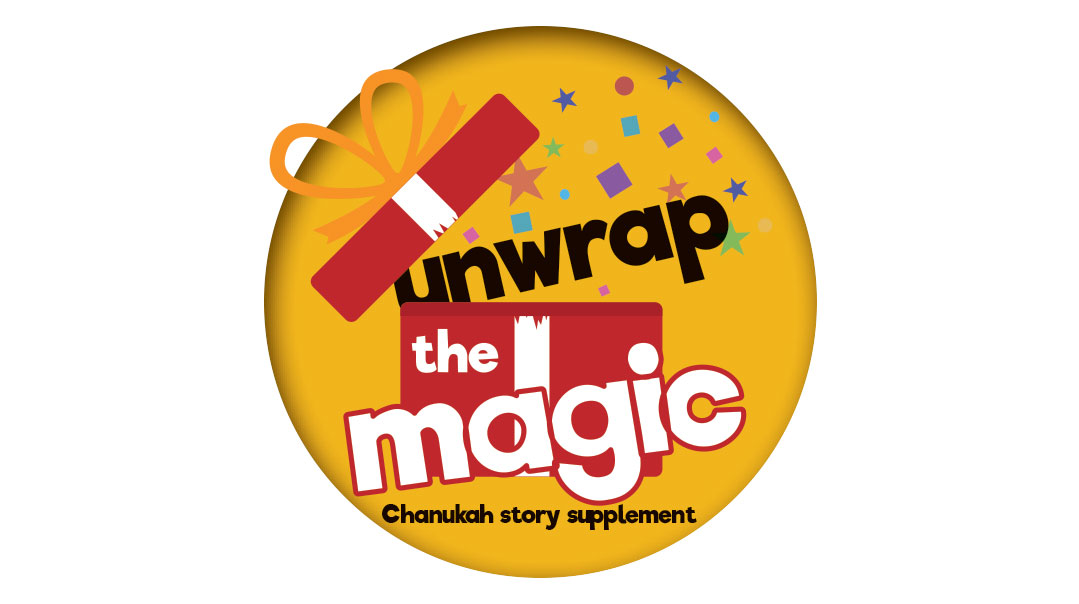My Feelings, Your Feelings
| April 3, 2023He was stuck, stuck, stuck with nowhere to go. His plans and ideas were good ones, all of them, but they were just plain useless if he didn’t have money

Frustrated, Betzalel thought. Hopeless. Practicing “feeling words” might be helpful in recognizing his feelings, but what good did that really do, anyway? It wouldn’t solve his problem. So what was the use in defining how he felt when there was no solution?
Betzalel kicked at a pebble with his scuffed sneaker and watched it fly, in a graceful arch, over the sidewalk. Then he kicked another one for good measure and felt another emotion bubbling up inside his chest. Anger, he identified, and then only felt angrier, ‘cause now he knew he felt frustrated, hopeless, and angry and how did that help him, exactly? Betzalel knew that wasn’t quite accurate; it was often helpful, as he’d seen so many times in the past. Right now, though, he just wasn’t seeing how this was helpful.
His thoughts returned to Yitzchak as he continued marching down the sidewalk on his way home from their session. The wind howled, and the clouds were heavy, gray, and low in the sky. Thinking of Yitzchak always filled Betzalel with a strange sort of longing that was hard to identify with a “feeling word.” Maybe, maybe, it was loving. But it was a strong kind of love, a fierce, loyal kind of love, the kind of love you feel for someone who saved you. Remembering life before Yitzchak made Betzalel feel sad; that was an easy one to recognize. Life before Yitzchak was big and noisy and confusing. Working with Yitzchak over the last two years made Betzalel’s life clearer, the way the world came into focus when he washed his glasses after they got splattered with yogurt. Everything was easier to understand.
And that was the problem, really. Betzalel turned the last corner and could already see his house. He slowed his pace; thinking was harder at home, where his siblings generated a cacophony for most of the day. Here, outside, in the gloomy weather, it was quiet and easier to hear his own thoughts.
Yitzchak’s birthday was in four days. Yitzchak had mentioned it himself. Betzalel wanted to make it special, but he was just ten years old and didn’t have much money. There was a bit from Bubby Lerhfeld from his own birthday, but after buying the drone (which, of course, crashed and broke), it was just a dollar or two. That wasn’t nearly enough to make Yitzchak’s birthday special.
Betzalel realized that he didn’t just want to make it merely “special.” He wanted to do something stupendous, something wonderful, something that would show Yitzchak how much he, Betzalel, appreciated him and liked him.
Those sessions with Yitzchak — every Tuesday and Thursday — changed his life, and for the better. Learning how to recognize his own feelings — and the feelings of those around him — took a long time, but the effort and time were worth it. The next step was learning and practicing how to respond appropriately to all the different situations that could, and did, come up — with friends, with siblings, with his teachers. He was still working on it — hard — but the effort really was paying off. Life wasn’t so confusing anymore, and now Betzalel even had friends, too. But how could he show Yitzchak just how much he was appreciated?
Of course, Betzalel has already thought of asking his parents for money so he could celebrate Yitzchak’s birthday properly. But one of the things Betzalel had learned with Yitzchak was how to recognize his parents’ feelings, too, not just his own or his friends’.
Betzalel knew that Mommy’s creased forehead meant she was worried and that Tatty’s tense shoulders meant that he was, too. His parents were preoccupied and obviously concerned, and Betzalel knew, he just knew, it was because Tatty was about to lose his job. Just like Mendy Heller’s father had. And they weren’t going to have money. They were going to be poor. Betzalel felt the tears pricking at the corners of his eyes and his nose got all itchy. He thought of Yitzchak and his feeling chart, and he whispered, “Sad, worried, anxious.” Then he felt the bubbling rage again and the tears came. He was stuck, stuck, stuck with nowhere to go. His plans and ideas were good ones, all of them, but they were just plain useless if he didn’t have money. After all, to buy something wonderful, stupendous, and marvelous, like a plane ticket to Eretz Yisrael, or a Shas, which would really show Yitzchak how appreciated he was — cost way too much money, even if Tatty wasn’t about to lose his job.
Finally, Betzalel’s tears slowed, and he needed a tissue. With a big sigh, he wiped his eyes with the back of his hand, and, sniffling, he went home.
“Wake up, sleepy head!” Chananya, Betzalel’s big brother, sang out the next morning. Betzalel cracked open an eye and realized right away that he’d been dreaming about Yitzchak’s present again. All the feelings came rushing back — the frustration and hopelessness and anger, and Betzalel let out a moan. It was seven in the morning, and his day was already gloomy and glum. A glance out the window confirmed this; it was even darker than yesterday, and the wind was blowing hard.
As he ate breakfast, Betzalel observed his mother. She was trying to be as warm and upbeat as usual, but Betzalel could see that it wasn’t real. Her eyes were worried, and she kept looking at her phone. Was today the day? Was she waiting for the call that Tatty was on his way home, without a job? Betzalel pushed away his cornflakes as a wave of nausea rolled over him. Worried. Not only would Yitzchak not get the gift he deserved, but they wouldn’t have money for other important things either. Like… food, Betzalel thought wildly. No, there were probably, like, tzedakah organizations and stuff so that people wouldn’t actually go hungry. But… would it be enough food? And… and what about Yitzchak? His parents paid Yitzchak. He knew they did; he delivered the checks himself, every Rosh Chodesh. What if — what if his sessions with Yitzchak had to stop? Would the world get all murky and confusing again?
Mommy touched Betzalel’s cheek, and he jumped. “Everything okay, Betzalel?” Mommy asked.
Betzalel bit his tongue. He wanted to say — no, shout — “No! Everything is not okay! Tatty is about to lose his job, and we’re going to be poor, and we’re not going to have any money, and I’m not going to be able to go to Yitzchak anymore, and I don’t have a present for his birthday, which is in just three days!” But he didn’t say that. He shrugged. Mommy fixed his peyos and said, “Betzalel, if you’re worried about anything, you know you can always talk to me or Tatty. You’ve been a little quiet for the last few days.”
Betzalel didn’t say anything. Mommy handed him his lunch. Betzalel thanked her and then said a brachah acharonah. He struggled into his coat, said “Bye,” and walked out into the windy, cold morning.
The whole way to school, Betzalel felt his thoughts looping, around and around and around again. There was no solution. There was no way to show Yitzchak how much he cared about him. They were going to be poor, and there were going to be bigger issues, too. By the time he got to school, Betzalel was downright miserable. Hours later, when he came home, his mood was still as bleak as the weather. And then he saw it. Tatty’s car. In the driveway. Hours before he should have been home.
Betzalel’s heart hammered in his chest. That was it; it had happened. Tatty was home. There was no more money. He flew into the house and dumped his backpack and coat in the hall closet. The sound of Mommy crying made his ears prickle and his eyes sting. His breath came in fast bursts. What was he going to do?
Tatty’s low voice was coming from the kitchen now, but Betzalel couldn’t hear his words because of all the noise his siblings were making. There were shouts coming from the playroom and laughter from the den and singing from upstairs. Betzalel’s head swam as he tiptoed closer to the kitchen.
“It will all work out,” Tatty was saying. “Hashem will help us, and everything will be alright.” Mommy hiccupped and Betzalel rubbed his eyes, hard. Without quite planning his next move, he burst into the kitchen. It looked exactly as he’d pictured it; Mommy’s eyes were red, and she sat at the wooden table with her head in her hands. Tatty sat beside her.
“What are we going to do?” Betzalel wailed before he could stop himself.
Both his parents looked up in surprise. “We’ll handle the situation,” Tatty replied, with a confidence Betzalel did not feel.
“How?” Betzalel cried. “It’s going to be so, so hard!”
Tatty nodded, and he looked sad. “Yes. It will. You’re right. But we can handle hard things.”
Mommy started crying again, and Betzalel burst into tears. “I can’t! I can’t! It’s too… it’s too….” he stopped, paused for a breath, and then said, “Overwhelming!”
Tatty looked at him in surprise, and Mommy coughed through her tears. “Betzalel, sweetheart, Savta’s issues are very big, but they don’t need to be overwhelming to you! We’re going to take care of everything.”
Betzalel stopped crying. “Savta?”
Now both Tatty and Mommy were looking at him strangely. He looked from one to another. “What about… what about Tatty’s job?”
“Tatty’s job?” Mommy repeated, and Betzalel studied her face and thought, confused. Mommy clearly did not know what he was talking about. Now he felt confused, too.
“What do you mean, Betzalel?” Tatty asked kindly.
“About losing your job! And not having money! And not having something special for Yitzchak to show him how much I appreciate him!”
Mommy and Tatty looked at each other and then back at Betzalel.
“Why did you think something was wrong with my job?” Tatty asked gently.
“Because — because you and Mommy were so worried all the time! For, like, a week already!”
A great, big smile broke out across Mommy’s face. “Betzalel!” she exclaimed. “I am so proud of you! You really recognized what we were feeling! That is amazing. But,” she quickly added, “although you recognized the emotion correctly, you had no idea what the source of our worry was. Why didn’t you talk to us, sweetheart?”
Tatty said, “Baruch Hashem, I have a job, and there’s no reason to think that I’ll be losing it. We’ve been very worried about some significant health issues that Savta is having.”
“Oh.” Betzalel looked from one parent to the other. Mommy took a tissue and reached out to dry his cheek.
“Yitzchak’s birthday is in three days,” he whispered. “I wanted to do something special for it. But… but I saw you were so worried and… I didn’t want to ask you for money.”
Tatty stood up and gave Betzalel a squeeze. “You’re a good kid,” he said.
“But you need to talk to us!” Mommy said. “I could see that you’ve been upset the last few days. I think I even asked you about it this morning!”
“You did,” Betzalel admitted. He remembered how he couldn’t even eat his breakfast.
“You were right that we were worried, Betzalel. And we still are. Savta’s not doing well, and we have two different opinions on the best way to help her. But we’ll figure it out. It will be okay.”
“That’s why you came home early?” Betzalel asked.
“Yes, I took Mommy and Savta to an important appointment at the hospital today.”
Betzalel felt it: relief.
“So… so we can get Yitzchak something special for his birthday?” he asked softly.
“For sure,” Mommy said. “It might not be a trip to Israel,” she said, looking at Betzalel meaningfully, “but we’ll for sure get him something wonderful. After all,” she wiped at her eyes with a tissue, “you two have been doing good work together. And we’re very proud.”
Betzalel didn’t have to think twice. Happy, he thought.
And then… grateful. “Thank you, Mommy and Tatty.” he said. “And… thank You, Hashem.”
(Originally featured in Mishpacha Jr., Issue 956)
Oops! We could not locate your form.







